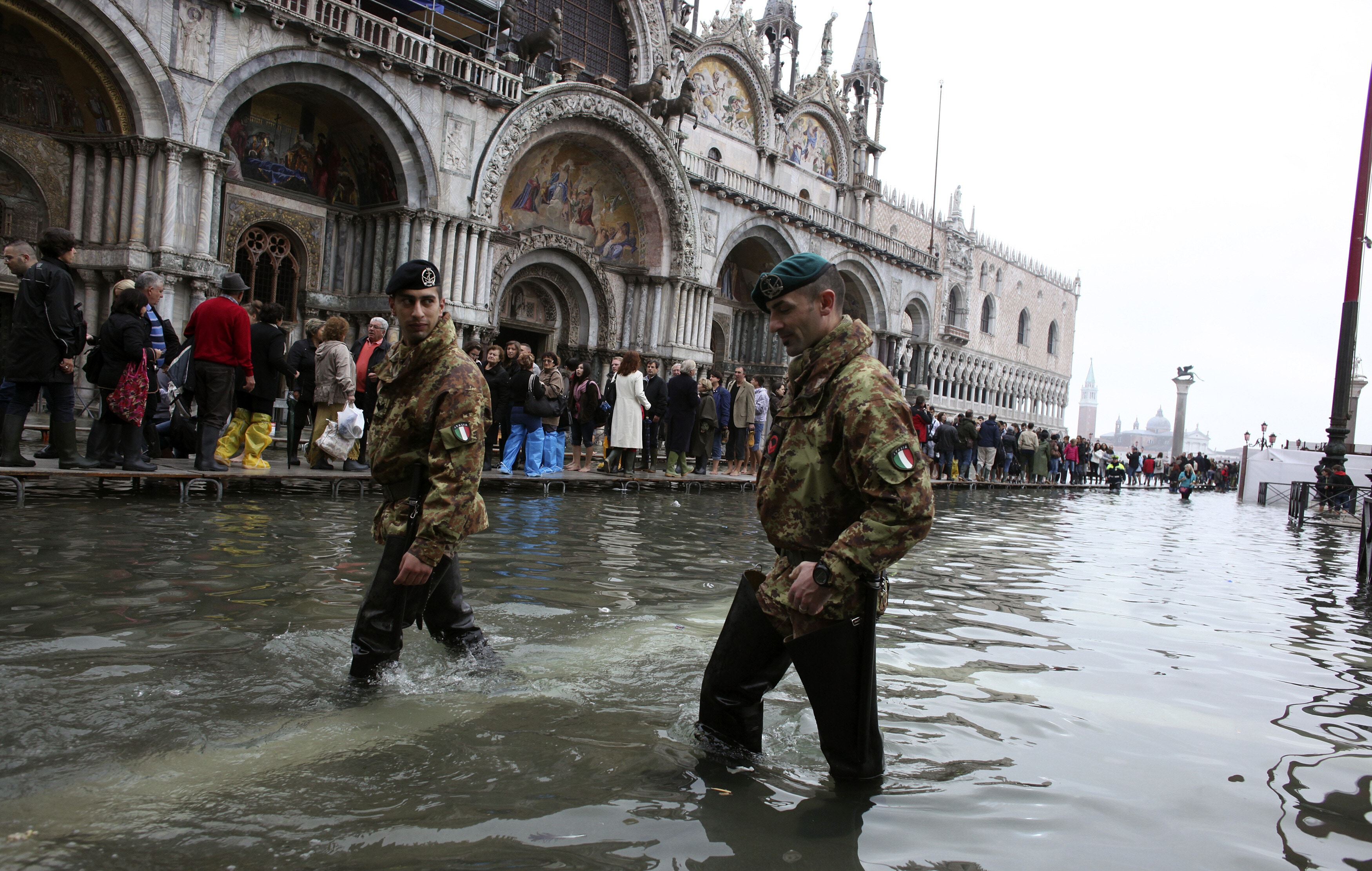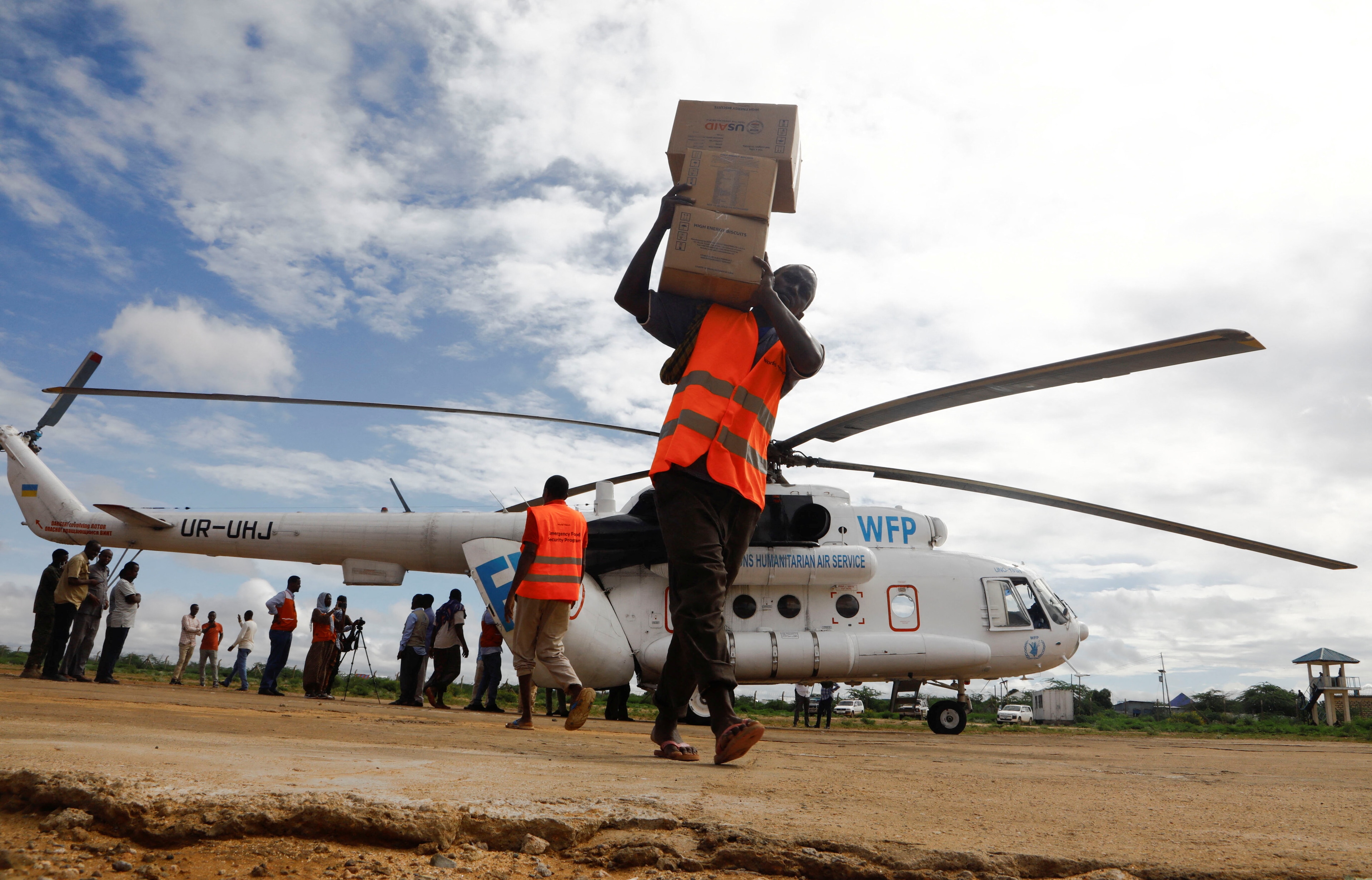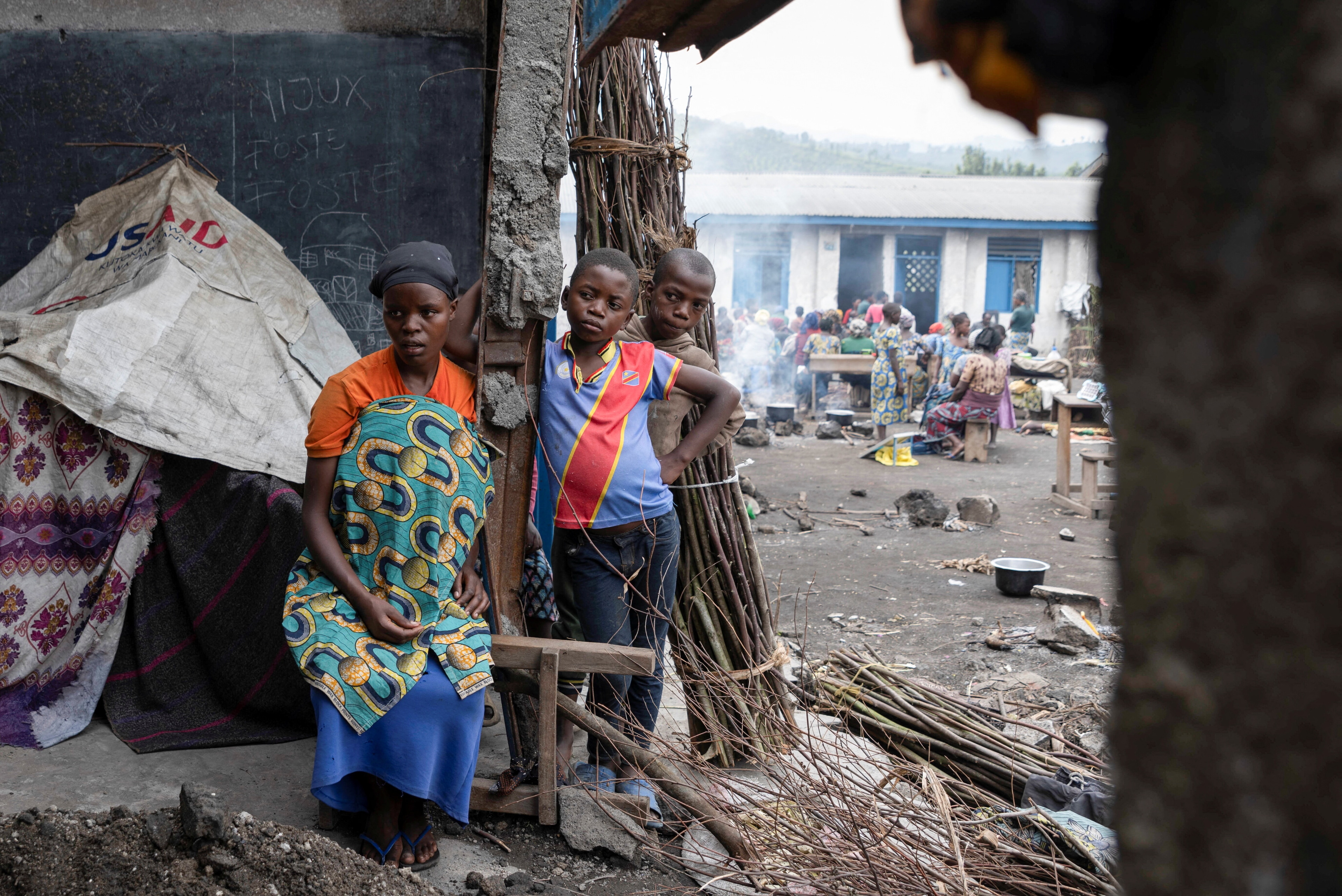Why Iraq needs to bring its paramilitaries into the mainstream

Non-state security forces now need to be separated from politics and economic activity
Image: REUTERS/Thaier Al-Sudani
Stay up to date:
Fragility, Violence and Conflict
This article is part of the World Economic Forum's Geostrategy platform
At the end of 2017, when Iraqi Prime Minister Haider al-Abadi declared victory over the Islamic State (ISIS), he thanked not just the state’s armed forces but also an array of autonomous armed groups.
The strongest among these, the Popular Mobilisation Units (or Forces, the Hashd al-Shaabi), are an umbrella organisation of some 50 paramilitary outfits. The Hashd are exploiting a legal grey zone to expand their reach in the security, political and economic spheres; their autonomy impedes efforts – which they claim to support – to build a functioning state.
The question is what to do with them. With their full integration into the formal security sector politically impossible for now, the solution lies in resolving legal ambiguities that have prevented the separation of security actors from political and economic activity; providing work for unemployed former fighters in reconstruction; and continuing to strengthen formal security institutions to render them less reliant on paramilitary assistance.
After ISIS conquered large swathes of Iraqi territory from the retreating and collapsing army and federal police in June 2014, volunteers – responding to a call from the Shiites’ paramount religious leader, Grand Ayatollah Ali al-Sistani – joined paramilitary groups in droves to defend Baghdad, Shiite holy sites and the country generally.
Hashd's critical role
The Hashd played a critical role in fighting and, after three years, defeating ISIS. In the meantime, they incorporated militias from Sunni Arab and minority populations to become a formidable security force separate from the federal army and police, enjoying broad popularity among Iraq’s Shiite population in particular.
Prime Minister Haider al-Abadi, who on paper is commander-in-chief of the armed forces, has been unable to bring the paramilitary groups under state control and restore the state’s monopoly over the legitimate use of force. By law, the Hashd are part of the state’s security apparatus, but they are recognised as an autonomous unit under the (civilian) National Security Council (NSC). Senior Iraqi political leaders and groups employ their own private guards, further undermining the state’s monopoly over legitimate violence even as they accept that principle in their rhetoric.

Abadi has repeatedly announced his aspiration to fully integrate the paramilitary groups, but has yet to articulate, let alone implement, a coherent plan for doing so. It has become clear that the Hashd, capitalising on their well-earned fighting reputation and popularity, will not simply disband or merge into the defence and interior ministries in the short term. During popular protests over poor service delivery in July 2018, some paramilitary groups joined security forces in attempting to restore control and protect the post-2003 political order, as if to underline the continued need for their existence.
The problem derives from a much deeper pathology: the dismantling of Iraq’s security architecture after the 2003 U.S.-led invasion and the resulting vacuum, which non-state armed groups arose to fill. Those events created a debilitating cycle. The Hashd’s autonomy thrives on state weakness, yet it weakens state institutions further the more it expands.
The proliferation of armed groups outside the two security ministries presents the most serious challenge to rebuilding the post-2003 Iraqi state. In the long term, therefore, security sector reform should not aim solely to integrate the Hashd fully into the security apparatus, but to build the capacities of the defence and interior ministries to prevent other private individuals and groups from taking the Hashd’s place.
Political dimension
To add to the challenge, the Hashd operate in politics as well as in the security domain. Hashd leaders formed an electoral bloc, the Fatah Alliance, which placed second in the 12 May parliamentary elections. Yet their participation in politics and possibly government remains controversial in Iraq, as well as in the region, where Hashd leaders are seen as proxies of Iran.
The Hashd have attained a profile in the economic sphere, too, competing with more traditional actors, such as the state, to provide reconstruction and services to citizens. They have done so particularly in areas retaken from ISIS, many of which suffered heavy destruction. While it makes good sense to employ demobilised fighters in reconstruction, it makes no sense to allow the Hashd to seize control of that economic sector without effective state oversight. In effect, the Hashd are setting up an array of institutions parallel to the state’s.
International actors can help Iraq recover from almost four decades of war and sanctions.
”The government that emerges from the May elections will need to gradually bring the Hashd fully into the state apparatus. A first step would be to resolve the legal ambiguities about the status of not just the Hashd but also the Counter-Terrorism Service (CTS), which, while closely linked to the army, also enjoys legal autonomy. Beyond that, the government should continue efforts to strengthen the defence and interior ministries by insulating them from politics and instituting recruitment policies based on merit rather than loyalty.
A bigger struggle looms. Iran views the Hashd as an insurance policy against the return of a strong, antagonistic Iraqi state on its border, supported by the US and Saudi Arabia, or one controlled by an enemy such as ISIS.
For the Iraqi government to denounce the Hashd as incorrigible Iranian proxies is therefore likely to backfire. It is also unnecessary. The government has subtler tools at its disposal. A better way to curb the paramilitary phenomenon is to render the Hashd redundant by shifting power and capacity, in increments, to formal security institutions. This approach could harness the powerful Iraqi political currents already resisting Iran’s infiltration of the state’s security and intelligence institutions and pushing back against Iranian influence.
International actors can help Iraq recover from almost four decades of war and sanctions. First, they should develop a nuanced understanding of the Hashd and recognise the important role they played in defeating ISIS, and to some degree are continuing to play. Then, they should fund reconstruction, strengthen institutions that uphold the rule of law and support security sector reform.
The challenge posed by the Hashd will not be overcome easily; they are likely to remain a significant military, political and economic actor in the immediate post-ISIS phase. Yet the solution to the problem they pose for the state lies not primarily with them, but with the capacity and strength of the state itself, and whoever leads it.
Instant heroes
If Hashd fighters are not effectively demobilised and integrated into formal security structures or given civilian jobs, the destructive pattern established under Prime Minister Maliki could easily continue. His sectarian politics and concentration of power, as well as the Sunni Arab insurgent response and the weakness of the army and other security forces, helped ISIS return to Iraq from Syria and rampage through the north. Stepping into the void, the Hashd became instant heroes. But, with the worst of the fight over, will they stand down or stay on, benefiting from the state’s enduring weakness while further undermining it?
How demobilisation, reconciliation and reconstruction are handled by the next government will determine whether the Iraqi state will finally be able to rebound from almost four decades of unmitigated disaster.
The cycle of state weakness must be broken by Iraqis working under the aegis, and with the full support, of state institutions. Anything less is a recipe for enduring resentment, instability and conflict, bringing back a past that most Iraqis would like to remain just that – the past.
Iraq’s Paramilitary Groups: The Challenge of Rebuilding a Functioning State, the International Crisis Group
Don't miss any update on this topic
Create a free account and access your personalized content collection with our latest publications and analyses.
License and Republishing
World Economic Forum articles may be republished in accordance with the Creative Commons Attribution-NonCommercial-NoDerivatives 4.0 International Public License, and in accordance with our Terms of Use.
The views expressed in this article are those of the author alone and not the World Economic Forum.
Forum Stories newsletter
Bringing you weekly curated insights and analysis on the global issues that matter.
More on Resilience, Peace and SecuritySee all
Florian Krampe
July 31, 2025
Naoko Tochibayashi
July 28, 2025
Vanina Farber
July 21, 2025
Robert Piper
July 17, 2025
Resilience roundtable: How emerging markets can thrive amid geopolitical and geoeconomic uncertainty
Børge Brende, Bob Sternfels, Mohammed Al-Jadaan and Odile Françoise Renaud-Basso
July 9, 2025
Kate Whiting
June 19, 2025






